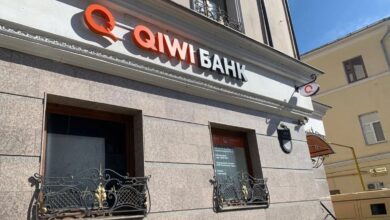
Regulators’ Concern at Bitcoin Activity ‘Not Surprising’ – MacroDigest Founder
©
AFP 2017/ Justin TALLISBusiness20:21 05.12.2017(updated 20:26 05.12.2017) Get short URL220
The UK and EU are planning new measures to subject cryptocurrencies to anti-money laundering and counter-terrorist financing regulations. Amid a record high in the price of Bitcoin, Dr. Garrick Hileman, a Research Fellow at the Cambridge Judge Business School, told Radio Sputnik that so far regulation seems to have had a positive effect on prices.
The increasing popularity of Bitcoin and other cryptocurrencies has led regulators to plan new measures to prevent them being used for illegal activities. The UK Treasury is «negotiating to bring virtual currency exchange platforms and some wallet providers within Anti-Money Laundering and Counter-Terrorist Financing regulation,» a spokesperson said.
The planned measures would compel Bitcoin traders to reveal their identities and report illegal activities to law enforcement. They build on existing EU anti-money laundering regulations, which are also being revised to include a requirement that cryptocurrency trading platforms report suspicious transactions and carry out due diligence on customers.
Prior to the European crackdown, earlier this year China banned mainland residents from trading Bitcoin and other cryptocurrencies on exchanges.
Dr. Garrick Hileman, a research fellow at the Cambridge Judge Business School and founder of economic news website MacroDigest, told Radio Sputnik that the increased popularity of Bitcoin has caused concern among regulators about how the cryptocurrency may be used.
Sputnik: Why did the EU and the UK choose to regulate Bitcoin now, when the currency is increasing on a daily basis?
Dr. Garrick Hileman: We have seen a massive uptick in use and growth over the past few months, we went from roughly three to six million active cryptocurrency users back in April, to what some estimate now to be as many as 40 million.
I conservatively put the number at between ten and 20 million, but growth is really picking up and Bitcoin has been famous for being useful on the online dark web for masking your identity, there are new cryptocurrencies out that have even greater privacy. As use increases, it’s not surprising that regulators start to be a little bit more concerned about illegal activity with these currencies.
Sputnik: How realistic is this going to be in terms of regulating Bitcoin?
Dr. Garrick Hileman: Many UK companies already practice Know Your Customer (KYC) and Anti-Money Laundering (AML) approaches, compliance and so for some companies this probably won’t represent too much of a change. I think we still need to see the fine print, what’s being asked for.
Certainly, asking companies in the UK for an entire list of all their customers may turn off companies from operating in the UK and that would in turn have knock-on effects in terms of how much growth we would see in cryptocurrency start-ups in the UK – they may choose to relocate to other countries which have a friendlier regulatory atmosphere.
Sputnik: One of the main factors impacting Bitcoin is speculation. How can this news of regulation influence its price in the longer term?
Dr. Garrick Hileman: It can cut both ways. On the one hand, when the first regulations for the sector were announced by FinCEN, part of the US Treasury, in 2013, it had a positive effect on Bitcoin’s price. It indicated that this was a space that was becoming important, that needed regulation and at the same time there wasn’t a ban issued or anything too draconian. So, it really helped to further legitimize the sector.
However, we saw the price sell off on Monday, on the initial announcement of the UK regulations, a while back we saw the price sell off even more significantly when China announced its ban on exchanges and ICO’s. So, regulation can also have a negative effect but so far, it seems to be on the whole having a positive effect. We are seeing more and more countries announcing outright, complete bans on cryptocurrencies and obviously if that were to accelerate and some of the largest countries were to join in on that, then that would obviously be a huge problem for cryptocurrencies.
Sputnik: Very recently, one country has announced its own cryptocurrency in the shape of Venezuela, with the «petro.» Do you think it could be referred to as a competitor to Bitcoin, as it will not be as decentralized?
Dr. Garrick Hileman: There’s a lot of questions around how it will be designed. It’s interesting they used the term cryptocurrency in the announcement; it’s not clear if that means the cryptocurrency in the announcement.
It’s not clear if that means this currency will have some of the privacy-enhancing features of some cryptocurrencies like Bitcoin, what the technology stack will look like. Will it be tradeable outside of Venezuela, and so on.
But it certainly could be a competitor to Bitcoin in Venezuela, and I think the fact that the term cryptocurrency was used in the announcement provides an important signal about the government’s intention to compete with growing interest in cryptocurrencies in Venezuela, which is largely driven by the economic crisis and devaluation of the local currency there, that’s currently ongoing.
sputniknews.com
